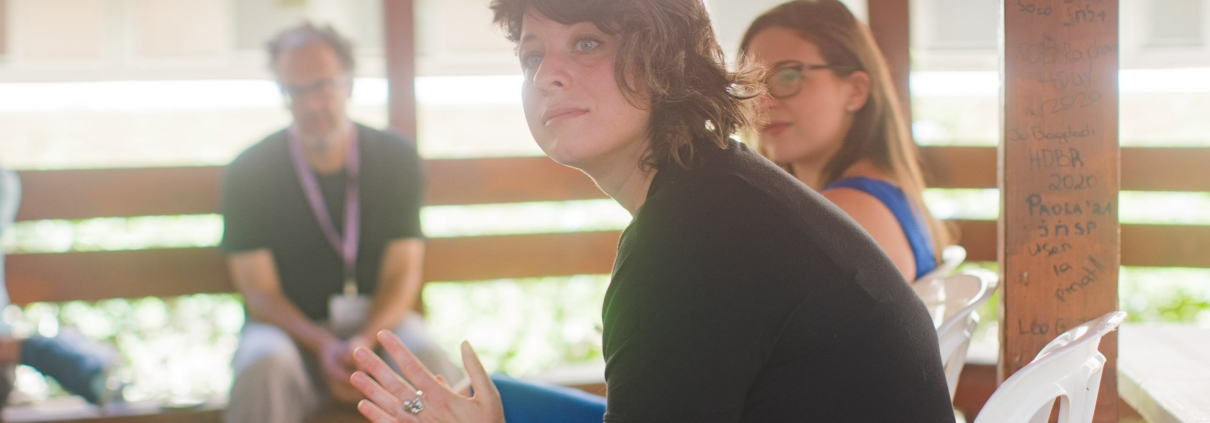Listen to Me!
Many Israelis and Palestinians are no longer looking for grand solutions to existential problems. Yet, the lack of a “peace process” does not mean that efforts toward peace have been abandoned. Across Israel conversations in more intimate settings are setting the cornerstones of coexistence.
Our group heard from Nazier Margally, a Palestinian journalist who shared his wisdom about the prospects for peace. Nazier harbored no immediate hope that the Palestinian dream of autonomy might be realized. Yet, Nazier declared that he would no longer act from a place of anger. Anger would not bring about the needed changes. And he has much to be angry about. He described to us that a relative had recently died but Israeli regulations would not permit his travel to the funeral. Similarly, he could freely visit relatives in other countries, as his family was split in 1948. With expectations diminished, Nazier focuses on the smaller conversations between Palestinians and Israelis to build confidence and trust.
We met with Avi Meyerstein, a Maryland-born attorney and activist, who advocates for dialogue and cooperation. Avi’s organization, Alliance for Middle East Peace, underscores the need for discourse. For Avi, the small conversations will bring bigger gains.
We visited Beit Feel, a multi-cultural arts center in Jerusalem serving everyone, including East Jerusalem Palestinians and black-hatted Haredim alike! Here the avant-garde are those using the arts in a shared space to find commonalities among people who have been in conflict. The displays, receptions, and programs open the way to dialogue and cooperation.
We spent time with the leaders of Ramle, a mixed city of Muslims and Jews. For several years, a mediation center has encouraged ongoing dialogue between representatives of various sub-groups in the city. The program has reaped great rewards. When violent riots erupted in neighboring Lod in May, 2021, Ramle remained relatively quiet. The spirit of cooperation enabled the local leadership to sustain calm. Road access to potential outside agitators was blocked. City leaders walked the streets together bringing composure in a turbulent time. The key had been years of preparation by building trust through dialogue among the local stakeholders.

We have become accustomed to grand gestures for peace in the Middle East. Such efforts are on ice. When talking about the prospects for peaceful coexistence, the current hope should not be for a great resolution. Rather, the current situation demands that we strive for just okay. Israel poses a challenge in “enoughness” for us. Rather than focus on complete solutions, let’s just have a respectful dialogue to create important connections.
A universal truth was being realized in hotel lobbies, art spaces, and conference rooms we visited. Creating a better future begins with small conversations. Our first and perhaps most important task is to take interest in others, even those whose opinions directly conflict with ours. The very act of listening and expressing appreciation relieves tensions and paves the way to improve if not preserve lives. Perhaps we can bring some of that wisdom home to the United States where shouting and accusing have supplanted personal engagement among people of differing views.
Rabbi Evan J. Krame





 Evan J. Krame was ordained as a rabbi by the
Evan J. Krame was ordained as a rabbi by the